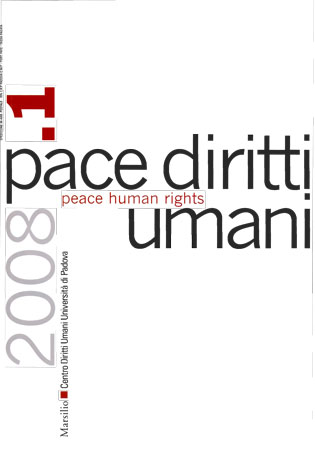Raccolte

Riforme costituzionali in Egitto: verso uno stato di diritto?
- Contenuto in
- Pace diritti umani - Peace Human Rights, 1/2008
- Tipologia pubblicazione
- Articolo / Saggio
- Pagine
- 111-128
- Lingua
- IT
Constitutional Reforms in Egypt: Towards a Rule of Law?
Erika Conti
Recent constitutional reforms have occurred in Egypt. It is only the last step of a long political process characterising President Mubarak’s agenda. Indeed, Mubarak, who has been in power since the assassination of Sadat (1981), launched a huge economic reform. In the ‘90s he promoted shifts in favour of the political agenda. In particular, since the new century, he has embarked on strong reforms, moving the country into the direction of a more democratic system and pledged an actual enforcement of the principle of the rule of law, citizenship and equality. In 2000, the Egyptian government has adapted the domestic law to some general good practices fixed in the framework of international law and electoral processes. In primis, it has allowed judicial supervision of the electoral process and, ultimately, monitoring by external observers from local NGOs in order to reach more transparency and security at the polls, and, consequently, confidence in the political arena.
However, thirty-four constitutional amendments which have been approved in February 2007 seem to indicate a reversal in the political openness trend. Despite previous official declarations claiming democracy and rule of law, recent constitutional reforms present blatant signs of ambiguity, especially as far as protection of human rights and political liberties are concerned. They irreversibly mark what has been called the normalisation of the emergency status in the Constitution. The present paper analyses such a shift in the wider perspective of cosmetic reform attitude which traditionally characterised Egyptian country. In particular, it will take into consideration the electoral process and the role of the judiciary power since it serves as a yardstick by which the schizophrenic changes are gauged.

